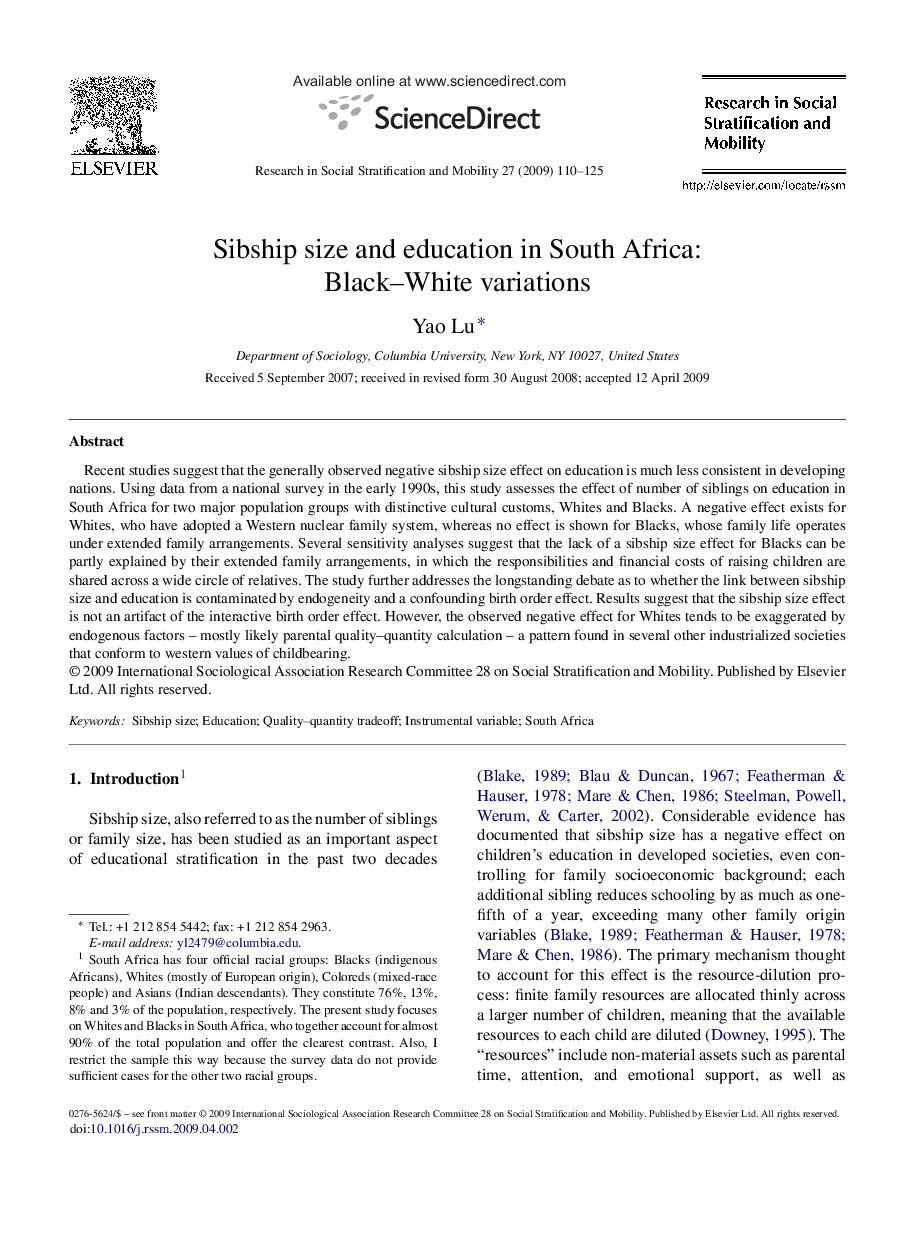| Article ID | Journal | Published Year | Pages | File Type |
|---|---|---|---|---|
| 999758 | Research in Social Stratification and Mobility | 2009 | 16 Pages |
Abstract
Recent studies suggest that the generally observed negative sibship size effect on education is much less consistent in developing nations. Using data from a national survey in the early 1990s, this study assesses the effect of number of siblings on education in South Africa for two major population groups with distinctive cultural customs, Whites and Blacks. A negative effect exists for Whites, who have adopted a Western nuclear family system, whereas no effect is shown for Blacks, whose family life operates under extended family arrangements. Several sensitivity analyses suggest that the lack of a sibship size effect for Blacks can be partly explained by their extended family arrangements, in which the responsibilities and financial costs of raising children are shared across a wide circle of relatives. The study further addresses the longstanding debate as to whether the link between sibship size and education is contaminated by endogeneity and a confounding birth order effect. Results suggest that the sibship size effect is not an artifact of the interactive birth order effect. However, the observed negative effect for Whites tends to be exaggerated by endogenous factors - mostly likely parental quality-quantity calculation - a pattern found in several other industrialized societies that conform to western values of childbearing.
Related Topics
Social Sciences and Humanities
Economics, Econometrics and Finance
Economics, Econometrics and Finance (General)
Authors
Yao Lu,
